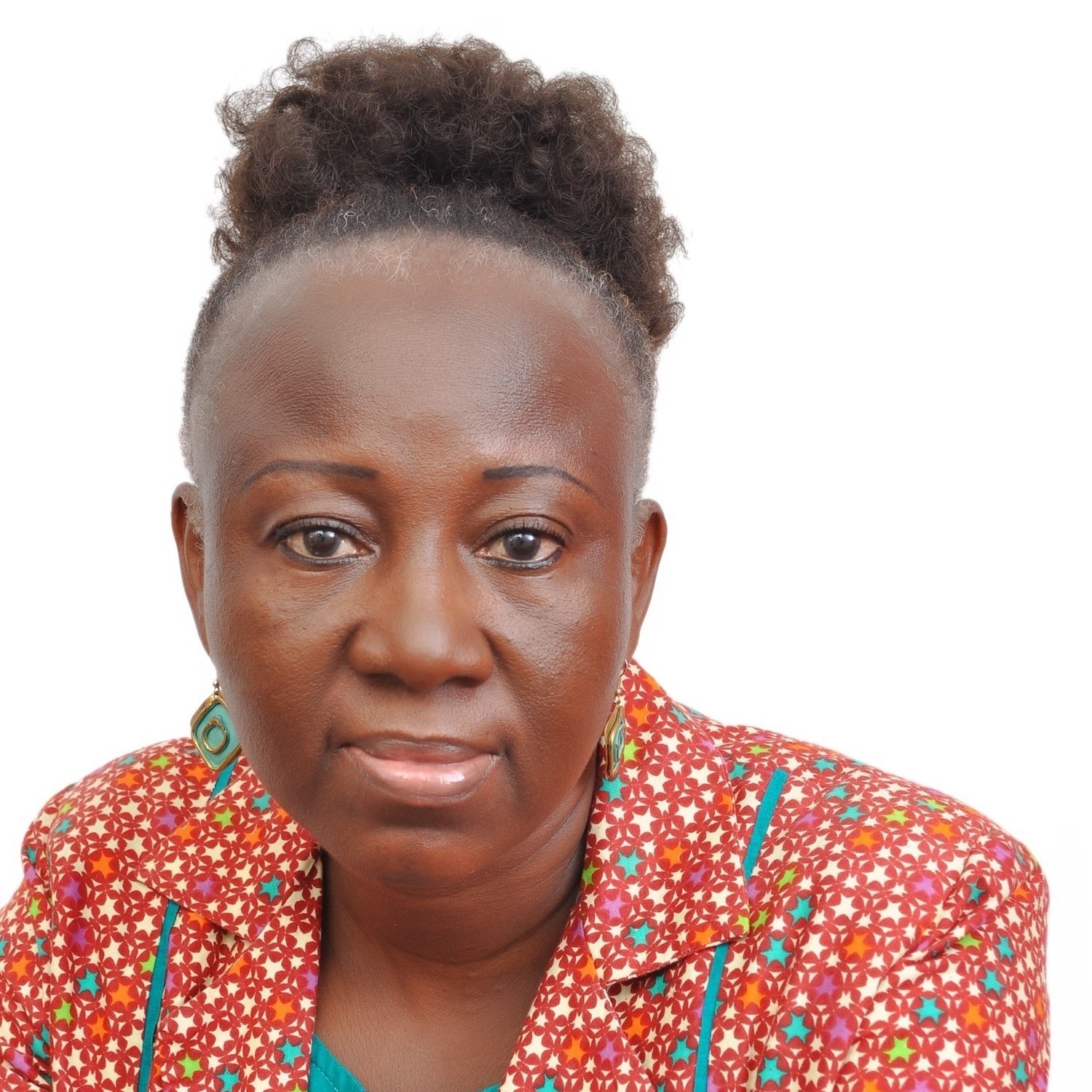
Name: Dr Irene Akua Agyepong
Institution: The Ghana Health Service (Research and Development Division)
Dr Irene Akua Agyepong is a public health researcher and civil servant who has built her career through all levels of the Ghana Health Service. She presented the 2018 Academy of Medical Sciences & The Lancet International Health Lecture focusing on universal health coverage. More recently, she has been on the steering committee behind the Academy's work on transforming maternal and newborn survival and stillbirths in sub-Saharan Africa - read the full meeting report here. She has also been working with the Academy's GCRF workshops programme in the UK, again on universal health coverage.
What motivates you?
My interest in health inequalities arose from working first in a district hospital, and then up through all levels of the Ghana Health Service. The stories have never left me. Some are tales of triumph: others unnecessary tragedies of missing resources or system failures. Rather than throw up my hands and despair, I made a quiet pledge not to forget and to make a difference whenever I could.
What are the key messages of your lecture?
Health reform is almost always political as well as technical, and you need a culture of mutual respect and interdependence. Researchers need to understand the political nature of using evidence, while politicians need to understand the value of high-quality research and allow intellectual independence.
At the global level, sustainable change has to come from within: if capacity is not there then it must be built. It is better to catalyse and support country-driven change, than take over the driving for fast visible results. Change driven globally with no strength from within can be as transient as the morning dew.
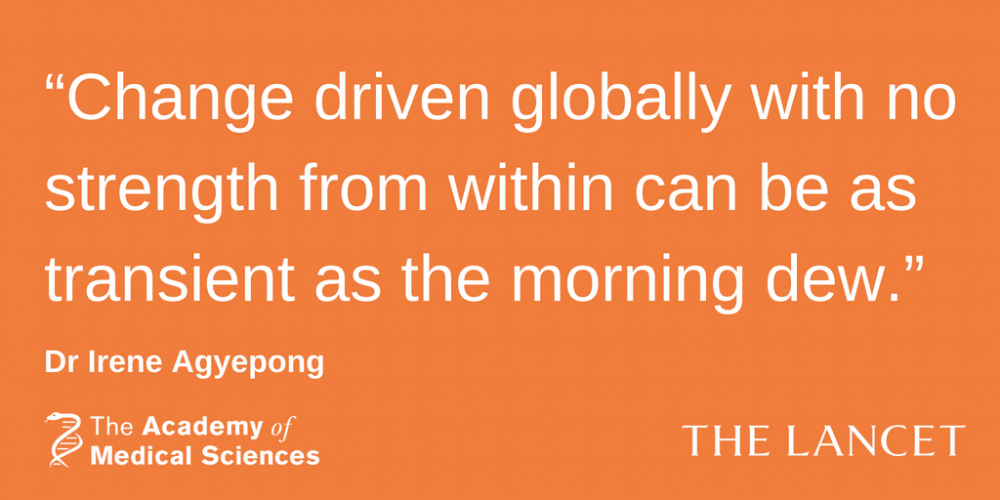
What difficulties you have faced when trying to change health policy?
Getting ideas implemented by people in power is never easy, and sometimes it has been outright risky.
When I am passionate about an issue I can be outspoken and end up treading on people’s toes. People in power are sometimes not comfortable with being challenged, and your advice can even be interpreted as politically motivated opposition. People in power can find it difficult to know what to do with researchers – and journalists or NGOs for that matter – who contradict pet projects or suggest the data does not support their preferred solutions. Sometimes, they can use their power to marginalize such voices so they stop hearing “unpleasant” information.
How do you deal with your ideas being ignored?
You need the humility to know you can be wrong: policy is not an exact science. It can be tempting to dismiss ideas that contradict your theories out of hand, so learn to listen to and carefully examine contrary opinions before deciding.
It also takes a lot of staying power and belief in what you have to say. You have to not accept a “flat earth” theory to keep the powers that be happy, and not lose heart when information is ignored and potentially disastrous decisions are taken. That is not easy.
How can countries ensure healthcare supports everyone?
I think those who design, implement and manage policies must try to understand what it feels like to be an ordinary person, and beyond that, what it feels like to be poor and deprived. The elite need to make a conscious effort to understand the non-elite.
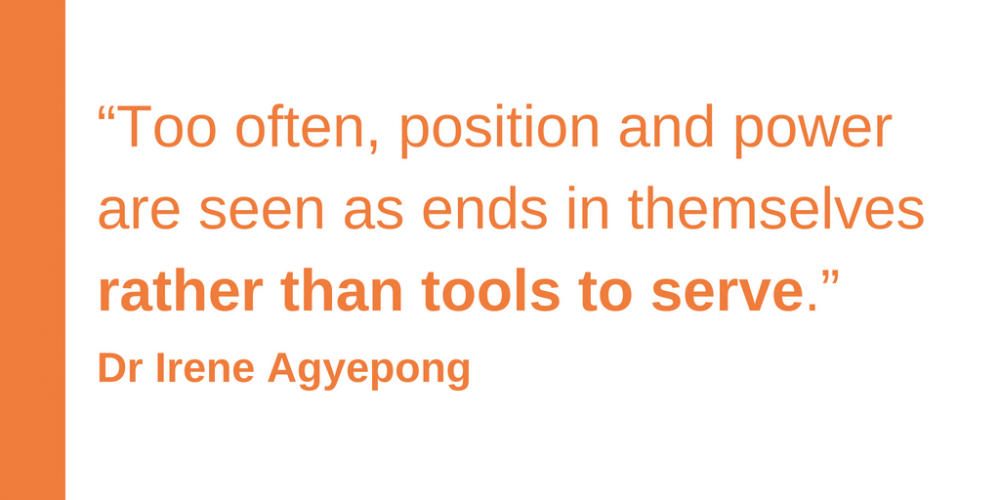
I think sometimes we forget that the numbers we are talking about in public health are real people, just like any of us.
How do you approach public health research?
I very much believe in using in-depth qualitative and observational methods to gain deep insights into health systems.
In 1990, I was given my first small research grant by the World Health Organization. We learnt about ethnographic methods before going off to spend time living in a small village in the district, becoming part of the community. We used conversations, in-depth interviews and focused group discussions to gain a deep understanding of the impacts of malaria on the community as a whole. You cannot get those kinds of insights from formal questionnaires.
Surveys, randomised controlled trials, big data analyses and other quantitative methods were the focus of my clinical training, and will always hold an importance and valuable place in research. But I find that researchers are sometimes locked into a hierarchy, placing quantitative methods at the top and with relatively low awareness of the rigour, quality and validity of qualitative work.
The value of the method depends on the question being asked: one approach cannot be assumed as an absolute gold standard for all health research. Now I do a lot of capacity building, and encourage people whose area of interest requires a social science that it is worth the effort.
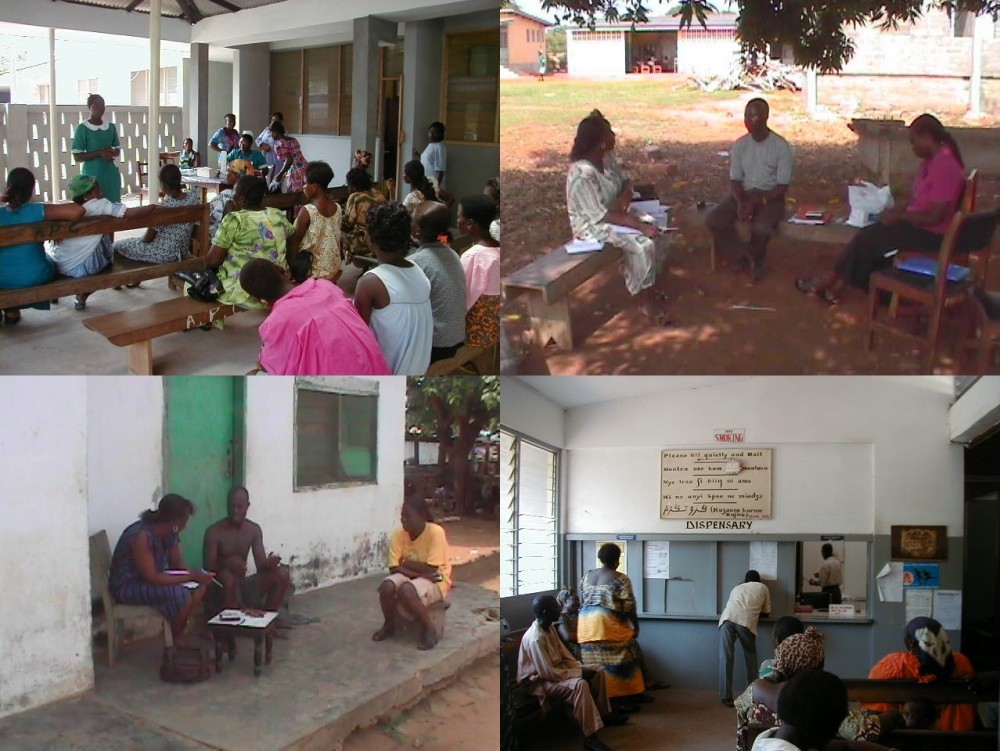
Clockwise from top left: conducting a rural health education class; ethnographic field work through conversation with local community members; visiting a rural dispensary; interviewing a traditional healer to understand traditional concepts of medicine use.
What are you most proud of?
On a personal level, I am very proud of both my parents. Their love and sacrifice and unfailing belief in me and my siblings have made us what we are today. My mother passed away in January 2014 and I still often miss her.
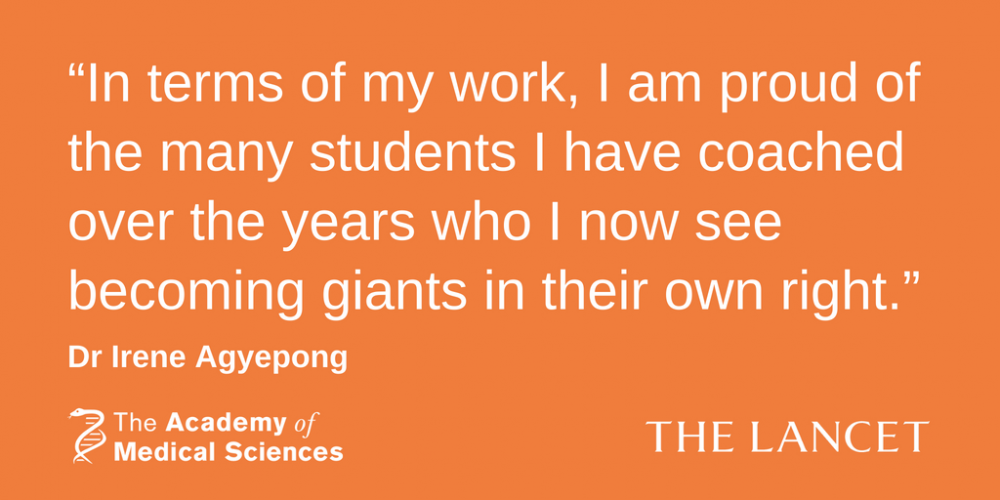
Their success is mostly due to their own potential, but I like to think I helped in some small way to bring it out.
I am also proud to have played some small role in the research and policy that gave birth to the Ghana National Health Insurance Scheme. The scheme did not just come about: it was the struggle and effort of many many people.
Not everything about our National Health Insurance Scheme has turned out the way I would have loved. However, that is the world. You do the best you can, and do not fret unduly over what goes beyond your control. You just try to stay focused and keep alert for windows of opportunity.
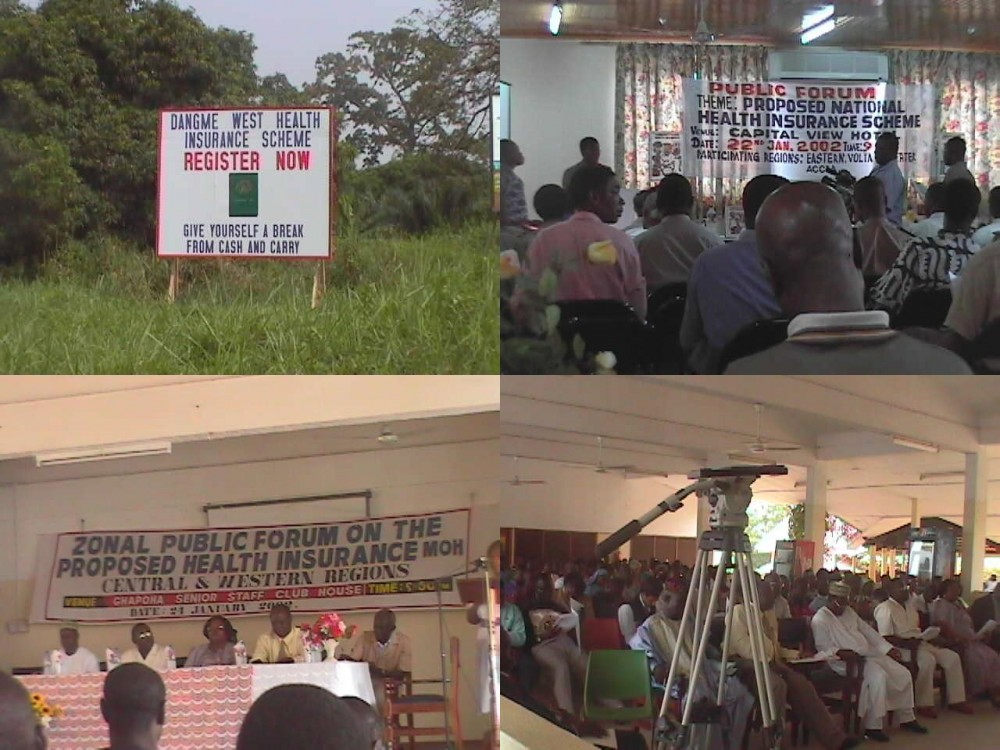
Clockwise from top left: roadside billboard from the Dangme West Health Insurance Experiment, speakers and attendees at three public forums in different regions of Ghana that preceded the passage of the National Health Insurance Scheme law.
How do you relax?
I love fashion design and the colourful fabrics that are so popular in West Africa. I no longer have time to sew, but I still visit fabric shops and look out for local design. You need to be careful though, otherwise you get carried away and end up with more clothes than you actually need…
I also love gardens, especially those with a touch of wildness and freedom. I dream of one day being able to afford to create a big garden home in the hills of Aburi near where I live – just to sit in and enjoy. I’m not sure I will ever be able to – but it’s good to dream.